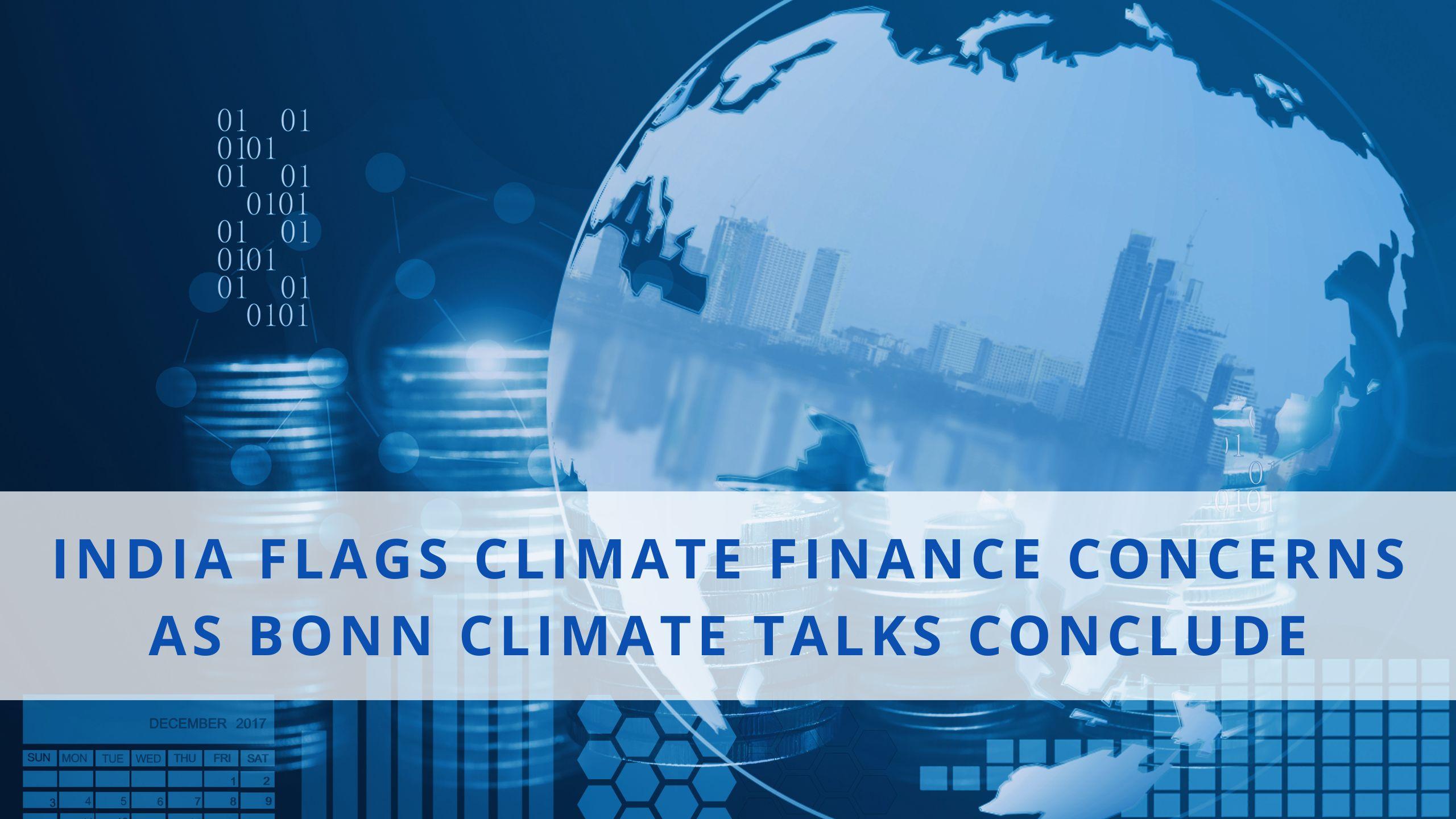Bonn Climate Talks Conclude as India Demands Fair Finance Action

At the conclusion of the Bonn Climate Talks 2025, India strongly demanded fair action on Climate Finance Concerns, making it clear that equitable funding is essential for meaningful global climate progress. India’s interventions highlighted the urgent need for developed nations to honor past commitments and deliver predictable, transparent, and accessible financial support to developing economies. Businessinfopro notes that India’s consistent advocacy underscores the centrality of finance in achieving a just and inclusive climate future.
India’s Call for Climate Justice
India stressed that climate finance is fundamentally about justice. With industrialized nations historically responsible for the bulk of greenhouse gas emissions, India argued they have a duty to assist emerging economies in their low-carbon transitions. The delegation warned that asking developing nations to pursue ambitious targets without financial support ignores the principle of equity embedded in international agreements.
India’s demand was clear: fair climate finance is not charity but compensation for historical responsibility. Without it, the global climate agenda risks becoming an exercise in inequality.
Finance as the Cornerstone of Progress
At Bonn, India consistently redirected discussions back to finance, even as negotiators debated carbon markets, adaptation plans, and global stocktake mechanisms. The country stressed that none of these initiatives can succeed without adequate financial backing.
For many developing nations, including India, climate finance is the cornerstone of progress. Without it, the cost of transitioning to renewable energy, building resilient infrastructure, and protecting vulnerable populations falls disproportionately on those least responsible for climate change.
The $100 Billion Pledge Remains Unfulfilled
India once again flagged the failure of developed nations to meet the $100 billion per year climate finance commitment made more than a decade ago. Despite frequent announcements, actual disbursements have fallen short, with inflated accounting practices obscuring the reality of finance flows.
India argued that this gap erodes trust between developed and developing nations, making it difficult to advance global cooperation. At Bonn, India demanded not only fulfillment of existing commitments but also stronger frameworks to ensure accountability going forward.
Adaptation Finance: The Neglected Priority
A major part of India’s climate finance concerns focused on adaptation. While mitigation—such as investing in renewable energy—receives significant attention and funding, adaptation continues to be sidelined.
For India, adaptation finance is critical, particularly for rural communities dependent on agriculture and regions vulnerable to floods, droughts, and rising sea levels. At Bonn, India highlighted the need for a more balanced financial approach that adequately addresses both mitigation and adaptation.
Technology Access and Capacity Building
India linked climate finance concerns to the urgent need for affordable technology transfer. Clean technologies such as advanced solar systems, hydrogen fuel, and carbon capture remain out of reach for many developing economies due to high costs and patent restrictions.
India argued that fair finance must also ensure technology sharing and capacity building. By investing in training, research, and institutional strengthening, financial flows can deliver long-term resilience and independence for developing nations.
The Global South’s Unified Voice
India’s message resonated across the Global South, with nations from Africa, Asia, and Latin America echoing its concerns. Together, these countries stressed that climate finance cannot remain an unfulfilled promise while climate impacts worsen year after year.
The collective demand for fairness added weight to India’s interventions, strengthening the negotiating position of vulnerable economies. At Bonn, this solidarity highlighted the growing influence of the Global South in climate diplomacy.
The New Collective Quantified Goal
One of the most anticipated debates at Bonn was the formulation of the New Collective Quantified Goal (NCQG) for climate finance beyond 2025. India argued that this new framework must reflect actual needs—measured in trillions of dollars annually—not politically convenient figures.
India also demanded that the NCQG prioritize grants over loans, ensuring that climate finance does not deepen debt traps for developing countries. Transparency, accountability, and equitable distribution were emphasized as essential elements of the new goal.
India’s Domestic Climate Agenda
In addition to its global advocacy, India showcased its ambitious climate commitments. These include installing 500 GW of renewable energy by 2030, advancing green hydrogen, expanding electric mobility, and achieving net zero emissions by 2070.
However, India reminded negotiators that these targets require substantial financial support. International finance must align with national priorities, supporting inclusive growth, job creation, and poverty reduction while enabling a just transition.
Looking Ahead After Bonn
The Bonn Climate Talks ended without concrete solutions to India’s demands, but they brought renewed attention to the urgency of finance. India’s consistent call for fairness, transparency, and accountability has set the stage for critical debates at COP30.
For Businessinfopro, India’s leadership in demanding fair climate finance action reflects a turning point in international climate diplomacy. The outcome of future negotiations will depend on whether developed nations step up and transform their pledges into tangible support for those who need it most.
Read Full Article: https://businessinfopro.com/india-flags-climate-finance-concerns-as-bonn-climate-talks-conclude/
About Us:
BusinessInfoPro is your essential gateway to cutting-edge business insights and strategic innovation, delivering expertly curated analysis on digital transformation, AI-powered planning, ERP optimization, sustainability, and marketing trends. We bridge the gap between emerging technologies and practical business applications whether it’s exploring AI’s impact on enterprise planning, optimizing supply-chain processes, or decoding the future of digital platforms and advertising. Our content empowers leaders to make informed decisions, stay ahead in competitive landscapes, and confidently navigate disruptions. Backed by forward-thinking perspectives and rigorous analysis, Businessinfopro is committed to equipping professionals with the tools and knowledge they need to transform challenges into opportunities and drive growth in a rapidly evolving business ecosystem.
- Art
- Causes
- Crafts
- Dance
- Drinks
- Film
- Fitness
- Food
- Oyunlar
- Gardening
- Health
- Home
- Literature
- Music
- Networking
- Other
- Party
- Religion
- Shopping
- Sports
- Theater
- Wellness




